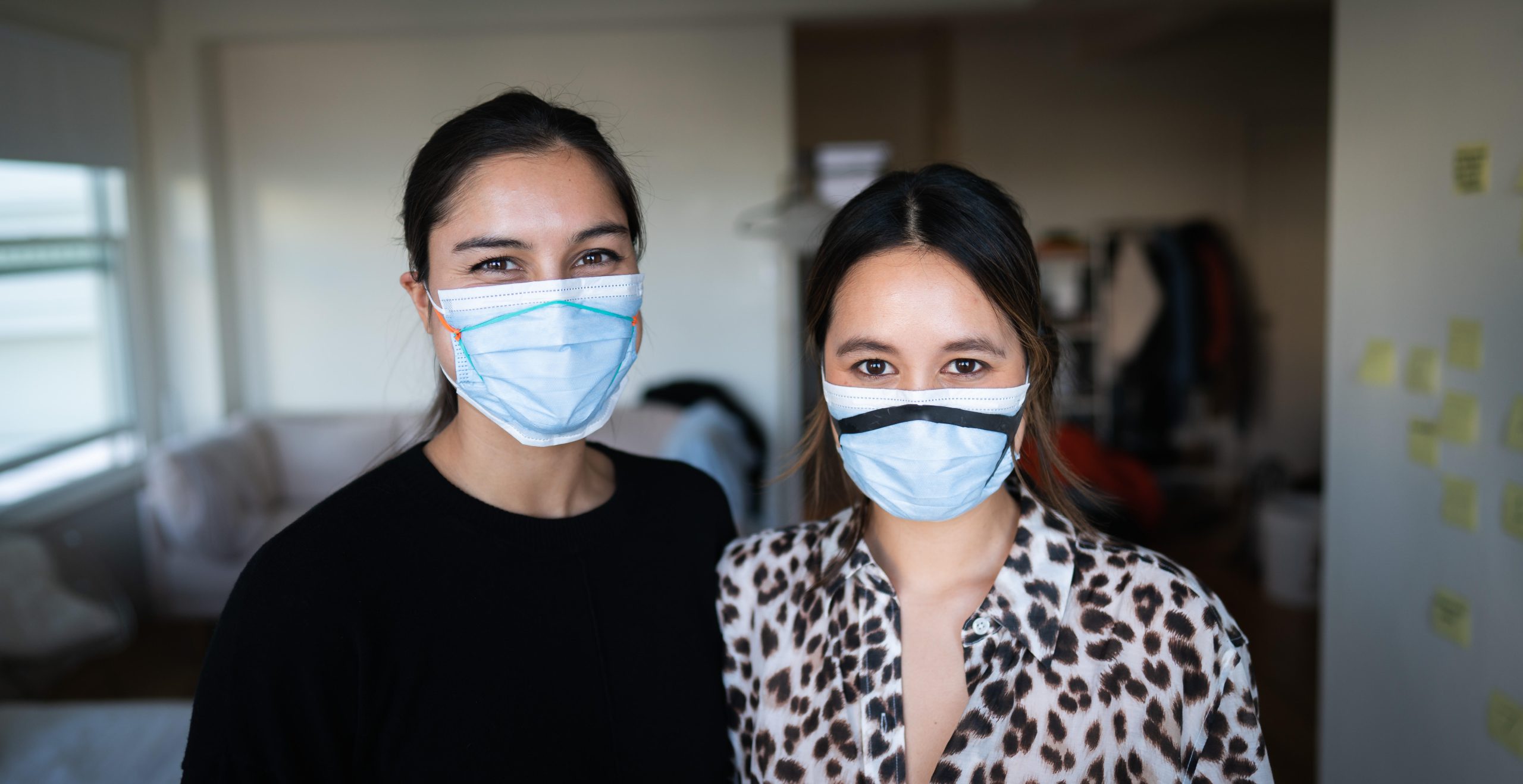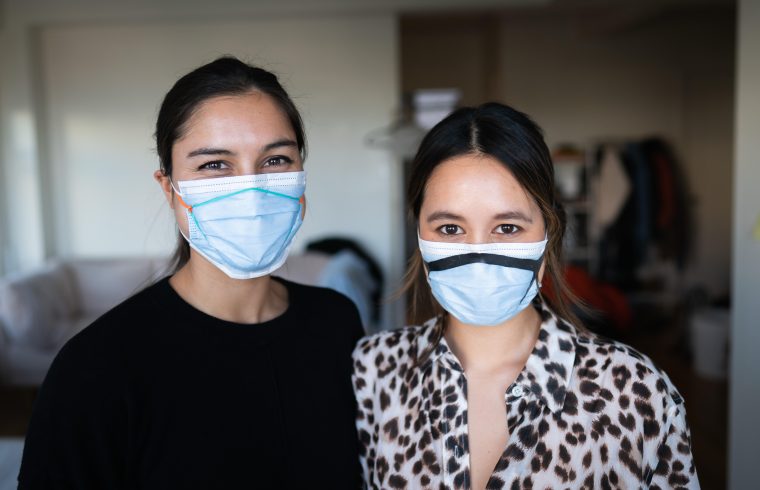
Fix The Mask co-founders Sabrina Paseman (left) and Megan Duong
Jo Ash Sakula
Last year at this time, Sabrina Paseman was at Apple working on the design of the Mac Pro. Now, she’s holed up in a San Francisco apartment with another ex-Apple employee trying to address the global mask shortage.
Paseman and Megan Duong are founders of a nonprofit they’re calling Fix The Mask, an effort to create a simple solution to a massive and growing problem. The lack of protective gear amid the Covid-19 pandemic is first and foremost a crisis in the health-care industry, but as states and countries start loosening social-distancing restrictions, the need for masks becomes more acute for people on buses, in stores and in the workplace.
As a mechanical engineer, Paseman, 28, decided to use the early days of the pandemic to deconstruct an N95 mask, the type used by doctors and nurses, to see if its protective qualities can be transferred to other types of medical facemasks. She found that surgical masks that meet the standard of the American Society of Testing and Materials (ASTM) can approach the effectiveness of the N95 with far less material as long they’re properly fitted to the face. And all it takes is three rubber bands.
By connecting the rubber bands into a chain, Fix The Mask is working to validate that a surgical mask can be sealed to a person’s face to keep almost all coronavirus-sized particles from getting in or being released. The group is partnering with the University of Pennsyvlania and another research institution in the testing process.
Fix The Mask published the rubber band method on its website for anyone to use. It also developed its own seal that is headed for manufacturing.
“We want to get these not just in the hands of hospitals but also essential workers and anyone else who can’t shelter in place,” Paseman said.
Duong, 29, is Fix The Mask’s marketing director, responsible for getting the word out across the globe. She previously spent four years at Apple as the head of brand and digital marketing at the company’s Claris division, formerly known as FileMaker. Her brother-in-law is an emergency room doctor, who spends his day with Covid-19 patients.
Duong left Apple in March, a few months after Paseman. They’re now in quarantine together, talking to potential manufacturers, collecting data from users and seeking out grant money to help finance their efforts. One of the messages Duong is trying to spread is that cloth masks, particularly those made with shirts and bandanas, are not a good substitute for medical-grade products.
In addition to the rubber band method, Fix The Mask also published the specs for creating a more sophisticated clamp using a rubber sheet and either laser cutting with 3D printing or larger-scale fabrication. That way anyone anywhere in the world can make them as long as they have a supply of ASTM surgical masks.
“If you get an N95 mask — great, use it, but this is the next best thing,” Duong said. “The simple act of sharing this can impact so many people.”
Fix The Mask is raising grant money for manufacturing and distribution. Paseman said the group’s initial manufacturer is looking to produce about 100,000 masks mostly for hard hit areas around Detroit and Chicago.
“We’re figuring out our distribution strategy based on need,” Paseman said. “We’re assessing need through statistics published online and through our social media platforms.”
They hope that between large-scale manufacturing and do-it-yourself makers, millions of masks are soon being created every week. Duong said the objective is to donate 1 million each to countries including Tanzania, the Philippines and India.
WATCH: FDA Commissioner Stephen Hahn on coronavirus trials and therapeutics







